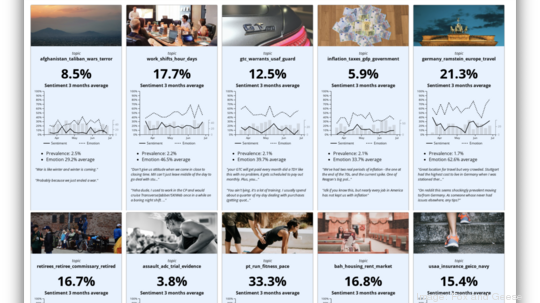
Beaverton software maker Fox and Geese can perhaps better be described by two other animals: the tortoise and the hare.
The company has been around since 2002 and is the opposite of founder Peter Bray’s other startups, including the late '90s Portland wunderkind Webridge, which was VC-backed and go go go, until the dotcom bust. He had another one that took a similar path as Webridge and sold to a Seattle company in 2012, which itself used VC funds to make the acquisition.
All the while, a Fox and Geese product called Versionista kept chugging along. The product monitors websites for changes. Initially, in the early aughts, Bray thought it would find a market with journalists who would be able to monitor politicians' and others' websites for changes.
It didn’t really gain traction with journalists. But, what did happen over the course of the last 15 years is a slew of new regulations companies must follow. And big corporate enterprises started using the product to monitor regulatory agency sites, said Bray. So, in 2017 he left a digital products gig at Starbucks and refocused on building Versionista and other similar products.
Fox and Geese is now a team of 10, with five in the Portland metro. It has three products that help customers make sense of vast amounts of text and monitor websites. It also has a growing business with military contracts.
“After doing this (building software) my whole career, whatever I plan to work it never works. It’s another thing that is successful. I have to leave room for serendipity,” Bray said. “Whatever the plan is, it’s the exact opposite where we end up.”
The company just landed a $1 million contract with the Department of Defense and its Office of People Analytics. The contract is a phase two grant through the federal Small Business Innovation Research program, which allows different federal agencies and departments to work with small businesses.
With this contract, the company is adapting its text analysis product called Fathom to help OPA better understand worker sentiment and culture across the DoD.

Fathom ingests massive amounts of text, in this case, tens of thousands of pages of survey results gathered by DoD from its personnel. Machine learning is layered on top of the data, and Fathom helps make sense of the text that includes in-group language specific to the military, slang and acronyms.
Using a machine learning approach called topic modeling, the software can cluster text and identify emerging issues or what issues are rising in importance.
“Our software will provide OPA with unprecedented insights into the diversity of perspectives across the DoD,” Bray said in a written statement. “This is a key step forward in understanding how policies impact different groups, ensuring that the DoD can better respond to the needs of its personnel while maintain a high-morale military.”
This is the second military SBIR for the company. A first one was with the U.S. Air Force, which helped initially develop the Fathom product. That contract went through the full two phases of SBIR, and now the company is working to leverage that work into a sole source contract, Bray said.
Bray said he never thought to look at the military as a possible customer. It was another bit of serendipity that led him to this path. Prior to the pandemic he was working out of WeWork’s Custom House location, and WeWork Labs Manager, and Navy veteran, Josh Carter told Bray about the SBIR program.
There was a learning curve working with government and figuring out the SBIR program, but it has paid off.
Fox and Geese is profitable, and now that there is product market fit Bray is looking at growing — likely in areas like sales and marketing, which up until now have been all word of mouth.
Fox and Geese is built on lessons Bray learned living through web 1.0 and 2.0 that relied on funding from sources other than customers.
“We are slow growth-minded,” he said. “We go where the customers want us to go.”








